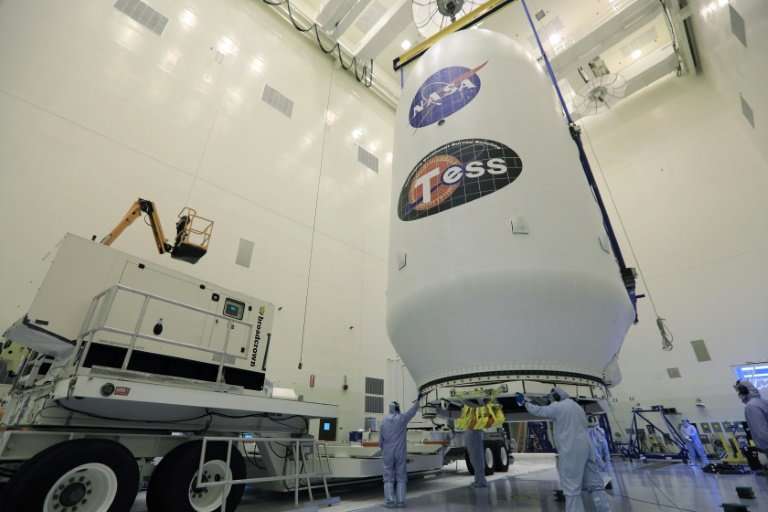SpaceX poised to blast off NASA's new planet-hunter, TESS

SpaceX was poised Wednesday to try again to blast off NASA's newest planet-hunting spacecraft after a two-day delay to check out the Falcon 9 rocket's navigation systems.
The $337 million Transiting Exoplanet Survey Satellite, or TESS, aims to search for planets where life may exist by scanning 85 percent of the skies for planets beyond the solar system, known as exoplanets.
"All systems and weather are go for Falcon 9's launch of @NASA_TESS today at 6:61 pm (2251 GMT)," SpaceX said on Twitter.
The initial attempt Monday was scrubbed about two hours before planned takeoff from a NASA pad at Cape Canaveral, Florida.
The washing machine-sized spacecraft is built to search the nearest, brightest stars for signs of periodic dimming. These so-called "transits" may mean that planets are in orbit around them.
TESS is expected to reveal 20,000 planets beyond our solar system, including more than 50 Earth-sized planets and up to 500 planets less than twice the size of the Earth, NASA said.
Its discoveries will be studied further by ground- and space-based telescopes for signs of habitability, including a rocky terrain, a size similar to Earth and a distance from their sun—neither too close nor too far—that allows the right temperature for liquid water.
TESS will survey far more cosmic terrain than its predecessor, NASA's Kepler Space Telescope, which launched in 2009.
© 2018 AFP




















